CORPORATE ACTION: Lidl
Lidl In Ireland And Northern Ireland Is Eradicating Its Use Of Black Plastic
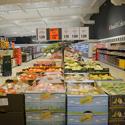
Lidl announced it is eliminating black plastic in packaging before Christmas from its fruit and vegetables in all of its stores in Ireland and Northern Ireland. It will be withdrawn from fresh fish products by February next year, and its poultry and fresh and cured meat products will follow by August. Lidl also announced that it had stopped selling single-use plastic items, such as straws, plastic plates, cups and cutlery. They will be replaced by biodegradable items. The retailer added that it continues to test unpackaged fruit and vegetables. Over a quarter of its fresh produce has no packaging. [Image Credit: © Lidl UK GmbH]
CORPORATE ACTION: Unilever
Seventh Generation Introduces ‘Game-Changing’ Innovation In Laundry Detergent Packaging
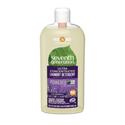
Unilever’s Seventh Generation detergent brand has launched what it claims is a game-changer. The 23oz bottle contains 100 per cent recycled PET and uses 60 per cent less plastic and 50 per cent less water than a typical 100oz bottle, for the same number of laundry loads. The product also features EasyDose™, a new automatic dosing technology in the cap. The EasyDose™ Ultraconcentrated Laundry Detergent was launched as an online exclusive. [Image Credit: © Seventh Generation, Inc]
CORPORATE ACTION: Other
AlgoTek Develops An Algae-Based, Degradable Plastic For Single-Use Market
 Startup AlgoTek has developed an edible and biodegradable plastic made mainly from brown algae powder. The plastic, which is created using a proprietary process, is durable and can be used for various single-use products such as capsules and bottles. The plastic, which is degraded by water, can withstand heat up to 140 degrees F and cold down to 10 degrees F. AlgoTek was established by chief executive officer David Crinnion and his college friends to help address the global plastic waste problem. AlgoTek has raised 35,000 dollars, is looking for manufacturing partners and aims to secure patents so it can license its technology to other users.[Image Credit: © AlgoteK ]
Startup AlgoTek has developed an edible and biodegradable plastic made mainly from brown algae powder. The plastic, which is created using a proprietary process, is durable and can be used for various single-use products such as capsules and bottles. The plastic, which is degraded by water, can withstand heat up to 140 degrees F and cold down to 10 degrees F. AlgoTek was established by chief executive officer David Crinnion and his college friends to help address the global plastic waste problem. AlgoTek has raised 35,000 dollars, is looking for manufacturing partners and aims to secure patents so it can license its technology to other users.[Image Credit: © AlgoteK ]
British Supermarket Chain The Co-op Replaces Plastic Bags With Biodegradable Alternatives
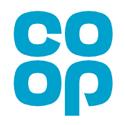
The Co-op became the first supermarket chain in Great Britain to adopt compostable alternatives as a replacement for single-use plastic bags. The move follows the 2015 law that requires retailers to charge five pence for plastic bags and reflects the supermarket's commitment to eliminate non-recyclable plastics from its products. The biodegradable plastic bags will be distributed in all 2,600 Co-op locations. Supermarket Waitrose & Partners also indicated it would switch to compostable bags while Lidl announced it would remove all black plastic from packaging (black plastic has been targeted since it’s harder for recyclers to process).[Image Credit: © Co-operative Group Limited]
A2 Milk Company Partners With Crediton Dairy To Replace Plastic Bottles With Paper-Based Cartons
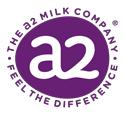 A2 Milk Company becomes the first fresh milk brand in the UK to replace plastic bottles with cartons, even though cartons are often used for similar products, including fruit juice and non-dairy milk. The company's partnership with Crediton Dairy aims to reducing the 38.5 million plastic bottles used in the UK daily by switching to recyclable paper-based cartons carrying the Forest Stewardship Council label. The A2 Milk Company is responding to increased pressure from consumers for packaging that uses less plastic. The brand, which uses milk free of the A1 protein type typically found in cow’s milk, is still relatively small in the UK, but is well-established in the US and has 10 percent of the Australian market.[Image Credit: © The a2 Milk Company]
A2 Milk Company becomes the first fresh milk brand in the UK to replace plastic bottles with cartons, even though cartons are often used for similar products, including fruit juice and non-dairy milk. The company's partnership with Crediton Dairy aims to reducing the 38.5 million plastic bottles used in the UK daily by switching to recyclable paper-based cartons carrying the Forest Stewardship Council label. The A2 Milk Company is responding to increased pressure from consumers for packaging that uses less plastic. The brand, which uses milk free of the A1 protein type typically found in cow’s milk, is still relatively small in the UK, but is well-established in the US and has 10 percent of the Australian market.[Image Credit: © The a2 Milk Company]
Australian Hair Care Company Kevin Murphy To Integrate Ocean Plastics Into Supply Chain
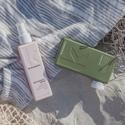
Company founder, Kevin Murphy, will use ocean plastics for his products' packaging in 2019 in an attempt to help reduce ocean plastic debris. Murphy, during a vacation in Bali, Indonesia, observed the environmental threat posed by plastic worldwide as an estimated 5 trillion tons of plastic currently litter the ocean. Danish packaging manufacturer Pack Tech is helping Murphy and his team switch to 100 percent ocean plastic packaging. To part offset the high cost of transporting, treating and reprocessing ocean plastic, Murphy increased the sale price of his products by 7 percent. Other companies that have similar advocacy include Dell and Adidas.[Image Credit: © Luis Murphy and Natasha Childs]
North London Budgens Opens Plastic-Free Zones
UK’s Ocado Will Soon Stop Using Non-Recyclable Polystyrene And PVC In Own-Label Items
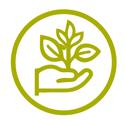
UK online supermarket Ocado says it will stop using non-recyclable PVC and polystyrene from its own-label products before Christmas and will remove black plastic by next spring. Ocado signed the UK Plastics Pact earlier this year, which is a commitment to stop using “problematic and unnecessary” single-use plastic packaging by 2025. Ocado’s website includes ‘low plastic’ and ‘recyclable’ categories, and has also added a ‘widely recycled’ category.[Image Credit: © Ocado Retail Limited]
ALLIANCES, PARTNERSHIPS & JVs
Premier Nutrition Corporation Partners With Tetra Pak To Launch A New Earth First Packaging Initiative For Its Premier Protein Shakes
 In its commitment to reduce its environmental impact, Premier Nutrition decided to change the packaging for its Premier Protein shakes by using Tetra Pak cartons certified by the Forest Stewardship Council. The cap is durable, recyclable, free from genetically modified organisms and made from sugarcane. Company president, Darcy Horn Davenport, claims the growing environmental awareness of consumers prompted them to reevaluate the product line's packaging.[Image Credit: © PREMIER NUTRITION CORPORATION]
In its commitment to reduce its environmental impact, Premier Nutrition decided to change the packaging for its Premier Protein shakes by using Tetra Pak cartons certified by the Forest Stewardship Council. The cap is durable, recyclable, free from genetically modified organisms and made from sugarcane. Company president, Darcy Horn Davenport, claims the growing environmental awareness of consumers prompted them to reevaluate the product line's packaging.[Image Credit: © PREMIER NUTRITION CORPORATION]
POLICY, REGULATION & LEGAL
Government Legislation, Documentaries Help Change Consumer Perception To Fuel Interest In Plastic Alternatives
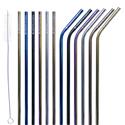 Anti-plastic sentiment globally has created challenges for established plastic-using brands, but also an opportunity for businesses to capitalize on the growing demand for plastic alternatives. The change has been driven by pressure from a range of directions, including governments and campaigns, supported by TV programs like War on Waste in Australia and the BBC’s Blue Planet II in the UK. A study by Kantar Worldpanel found that 44 percent of respondents are now more worried about single-use plastic than they were, and 70 percent aim to adopt more sustainable alternatives. Some of the companies bringing more sustainable options to market are doing more than merely offering alternatives to plastics. They are building brands of their own: Turtle Savers, which makes reusable stainless steel straws, will leverage social media to highlight branding on the product when it launches later this year, and S’well, a US-based steel bottle brand is sold as a fashion accessory.[Image Credit: © TurtleSavers]
Anti-plastic sentiment globally has created challenges for established plastic-using brands, but also an opportunity for businesses to capitalize on the growing demand for plastic alternatives. The change has been driven by pressure from a range of directions, including governments and campaigns, supported by TV programs like War on Waste in Australia and the BBC’s Blue Planet II in the UK. A study by Kantar Worldpanel found that 44 percent of respondents are now more worried about single-use plastic than they were, and 70 percent aim to adopt more sustainable alternatives. Some of the companies bringing more sustainable options to market are doing more than merely offering alternatives to plastics. They are building brands of their own: Turtle Savers, which makes reusable stainless steel straws, will leverage social media to highlight branding on the product when it launches later this year, and S’well, a US-based steel bottle brand is sold as a fashion accessory.[Image Credit: © TurtleSavers]
Multinational Corporations Support Campaign To Reduce Ocean Plastic Pollution
 Multinational corporations, including Coca-Cola and Walmart, pledged their support for the Ocean Plastics Charter signed by Britain, Canada, France, Germany, and Italy in June 2018. Despite an abstention by the two other G7 nations, United States and Japan, several non-G7 nations supported the plan to achieve 100 percent plastics recyclability by 2030. An announcement by Canadian Environment Minister Catherine McKena to create a new partnership with businesses to reduce plastic waste secured support from several companies, including Loblaws, Walmart, and IKEA, and Nestle Canada. Separately, Unilever announced the launch of a not-for-profit venture to reduce consumer and business waste.[Image Credit: © kakuko from pixabay]
Multinational corporations, including Coca-Cola and Walmart, pledged their support for the Ocean Plastics Charter signed by Britain, Canada, France, Germany, and Italy in June 2018. Despite an abstention by the two other G7 nations, United States and Japan, several non-G7 nations supported the plan to achieve 100 percent plastics recyclability by 2030. An announcement by Canadian Environment Minister Catherine McKena to create a new partnership with businesses to reduce plastic waste secured support from several companies, including Loblaws, Walmart, and IKEA, and Nestle Canada. Separately, Unilever announced the launch of a not-for-profit venture to reduce consumer and business waste.[Image Credit: © kakuko from pixabay]
Asia-Pacific Is Ramping Up Efforts To Reduce Single-Use Plastic
.jpg&width=125&height=125) There is a growing awareness of single-use plastic in the Asia-Pacific region, with governments and companies acting to reduce the volume of plastic waste. However, there are also concerns that too little is being done, and too slowly. In India, PepsiCo has committed to using 100% compostable, plant-based packaging for some of its snack brands, and Nestle plans globally to make 100% of its packaging either recyclable or reusable by 2025. Unilever has a similar target. In South Korea, supermarket chains Lotte Market, E-Mart, Mega Mart, Homeplus and Hanaro Mart, announced plans to reduce the number plastic shopping bags and encourage the use of reusable ones. In Singapore, a new zero-waste store opened in May 2018. Unpackt uses no packaging, inviting customers to bring their own containers. Governments too are acting. In India, the state of Maharastra introduced a ban on single-use plastics, and the whole country aims to be free of single-use plastics by 2022. A senate inquiry in Australia has recommended a national ban on single-use plastics, following state bans of single-use bags in Victoria and New South Wales. [Image Credit: © Unpackt]
There is a growing awareness of single-use plastic in the Asia-Pacific region, with governments and companies acting to reduce the volume of plastic waste. However, there are also concerns that too little is being done, and too slowly. In India, PepsiCo has committed to using 100% compostable, plant-based packaging for some of its snack brands, and Nestle plans globally to make 100% of its packaging either recyclable or reusable by 2025. Unilever has a similar target. In South Korea, supermarket chains Lotte Market, E-Mart, Mega Mart, Homeplus and Hanaro Mart, announced plans to reduce the number plastic shopping bags and encourage the use of reusable ones. In Singapore, a new zero-waste store opened in May 2018. Unpackt uses no packaging, inviting customers to bring their own containers. Governments too are acting. In India, the state of Maharastra introduced a ban on single-use plastics, and the whole country aims to be free of single-use plastics by 2022. A senate inquiry in Australia has recommended a national ban on single-use plastics, following state bans of single-use bags in Victoria and New South Wales. [Image Credit: © Unpackt]
INNOVATION & TECHNOLOGY
Novel Edible Utensils Enhance Customer Experience And Help Eliminate Plastic Waste
 Companies are responding to consumer concerns about plastic pollution and regulation restricting the use of plastic straws, with a range of innovative solutions. After announcing it would remove single-use straws globally by 2020, Starbucks introduced a pumpkin spice cookie straw. In the summer Diageo introduced flavored edible straws that supposedly complemented its canned cocktails. Beyond straws, British packaging startup Skipping Rocks Lab partnered with delivery service Just Eat to offer seaweed-based edible sauce sachets. Consumer awareness continues to rise as the scale of the issue becomes clear. One study found that just 9 percent of the 8.3 billion metric tons of plastic produced worldwide is recycled, underling the work still to be done.[Image Credit: © Skipping Rocks Lab]
Companies are responding to consumer concerns about plastic pollution and regulation restricting the use of plastic straws, with a range of innovative solutions. After announcing it would remove single-use straws globally by 2020, Starbucks introduced a pumpkin spice cookie straw. In the summer Diageo introduced flavored edible straws that supposedly complemented its canned cocktails. Beyond straws, British packaging startup Skipping Rocks Lab partnered with delivery service Just Eat to offer seaweed-based edible sauce sachets. Consumer awareness continues to rise as the scale of the issue becomes clear. One study found that just 9 percent of the 8.3 billion metric tons of plastic produced worldwide is recycled, underling the work still to be done.[Image Credit: © Skipping Rocks Lab]
Copyright 2026 Business360, Inc.

